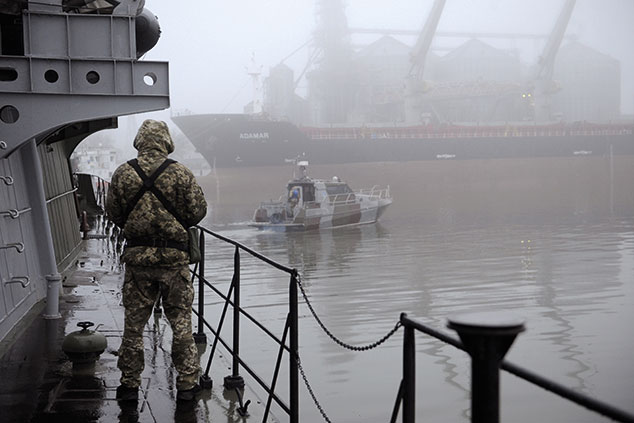
On Sunday, Russian forces shot, rammed and then seized two Ukrainian warships and a military tugboat, wounding six sailors and capturing 24, reports The Economist. The ships were passing through waters that separate Russia from Crimea, and had every right to be there under a treaty agreed by Kiev and Moscow in 2003.
The incident marks the first time that Russia has owned up to an attack on Ukrainian forces, four years after its surreptitious invasion of eastern Ukraine and annexation of Crimea. It is the culmination of six months of growing Russian pressure on Ukraine’s eastern ports in the Sea of Azov, whose sole outlet to the Black Sea, and thence the Mediterranean and the world, has been steadily squeezed in what amounts to an “undeclared blockade”.
Russia’s escalation is the most serious challenge to Kiev and the West since Russia annexed Crimea more than four years ago, say Keith Johnson, Amy Mackinnon and Robbie Gramer in Foreign Policy. Moscow’s moves are part of “deliberate efforts to consolidate its hold over Crimea and ring-fence much of the Black Sea”. Already its interference with Ukrainian shipping has cost Ukraine millions of dollars in economic losses and the latest move has prompted Ukrainian president Petro Poroshenko to declare martial law.
How should the West respond?
Allowing Putin “to further destabilise Ukraine risks heightening the dangers of a wider conflict that could affect the whole continent”, says The Times. It also increases the temptation that Poroshenko will use the crisis as an excuse to delay the election planned for next March.
However, the early signs aren’t encouraging for those hoping for a robust response from the West. It took President Trump some time to make even an ambivalent statement. It is therefore vital “that the West speaks loudly and with one voice to insist that Russia give Ukrainian ships unhindered access to Ukrainian ports”.
Russia’s actions are such a dangerous aggression that strong condemnations aren’t enough, says The New York Times. Putin is gambling that the West will not have the stomach to impose more punishment or provide more military support for Ukraine. The US and its Western allies should prove him wrong and “impose stronger economic sanctions, bar their ships from entering Russian ports in the Black or Azov Seas or increase military support for Ukraine”. All these actions carry risks, but then so does doing nothing.
Russian aggression reflects weakness
Despite its bellicose behaviour, Russia is weak, says David Patrikarakos in The Spectator. Putin is facing threats to his regime, which means the only options he has are to cling to power or face jail. Falling energy prices mean “decreased living standards are pervasive across Russia” – the recent decision to raise the retirement age sparked widespread protests.
These domestic problems have led to “an increase in Russian adventurism everywhere from Ukraine to Syria, as Putin seeks to project power to cover weakness”. History teaches us that “countries do stupid, dangerous things not when they are strong but when they are weak”. It’s not Russia’s strength, but its weakness, that we should fear.